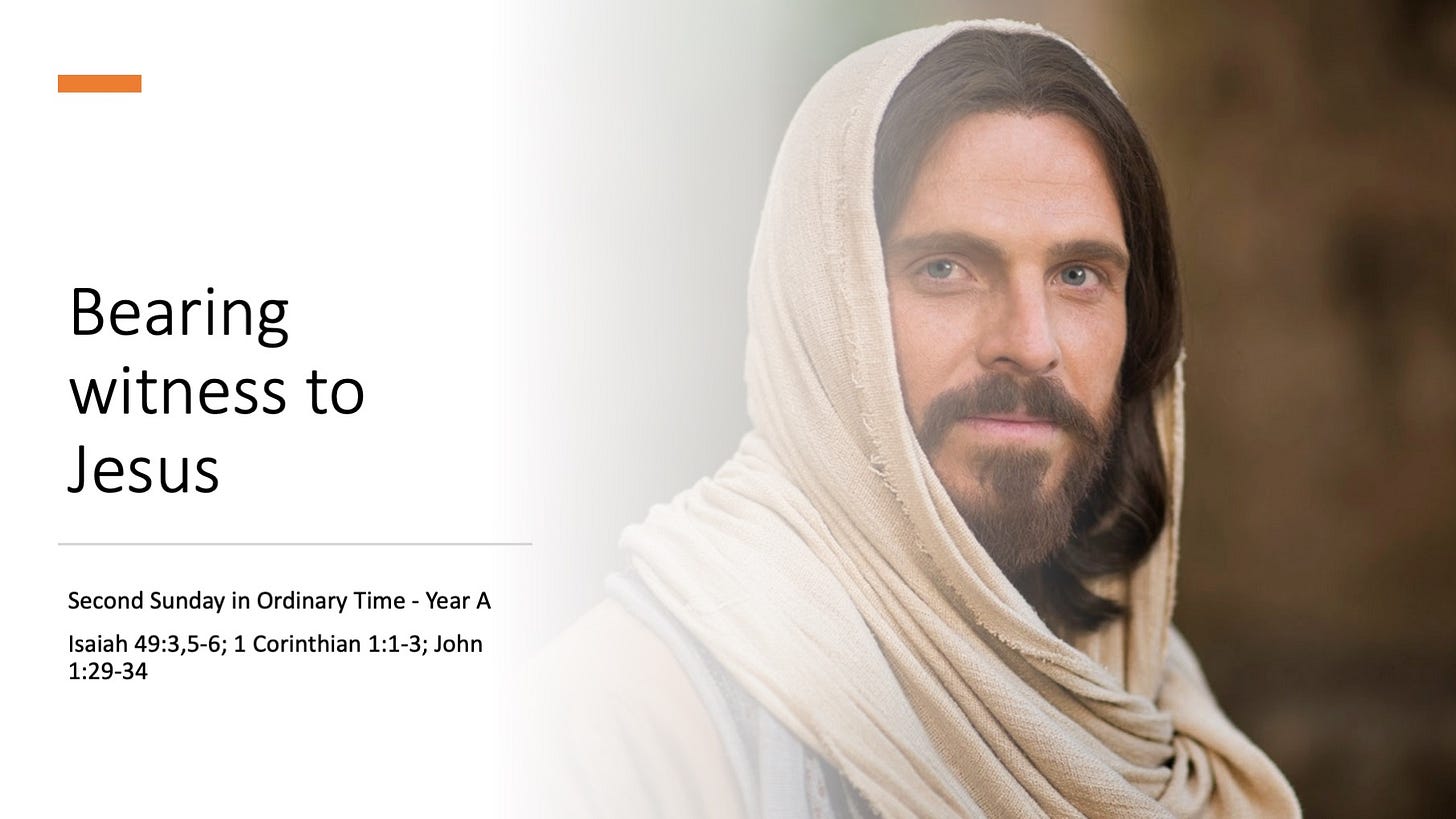A video for this reflection is also available on YouTube.
The messengers from Jerusalem asked John the Baptist two questions: "Who are you?" (John 1:19) and "why are you baptizing?" (John 1:25). To the first question, John answered that he was a "voice" (John 1:23), and to the second that he baptized so Jesus would reveal himself to Israel (John 1:31). The purpose of the Baptist's mission was to testify to the light that enlightens everyone (John 1:8) and Jesus Christ is this "light for the nations" (Is. 49:6).
The Baptist's testimony about Christ contains two terms: Jesus is the "Lamb of God" (John 1:29) and "the Son of God" (John 1:34). Jesus died on the cross on the day of preparation for the Passover, when the Passover lambs were sacrificed in the temple (John 19:31). His death fulfilled the prophecy of Isaiah that the servant of God, like a lamb, would be cut off out of the land of the living for the sins of the people of Israel (Is. 53:7-8). But there was also another reason for Jesus' death: "he has made himself the Son of God" (John 19:7). And yet, it is the purpose of John's Gospel to lead the reader to faith that Jesus is the Son of God (John 20: 30-31). Not only John the Baptist but also Nathanael (John 1:49) and Marta (John 11:27) demonstrated such faith. By believing that Jesus Christ is the Son of God we have life (John 20:31).
During the Mass, we hear, "this is the Lamb of God who takes away the sins of the world" (1 John 2:2), but John the Baptist speaks about "the sin of the world" (John 1:29). Usually, this "sin of the world" is identified with original sin, but Saint John Paul II teaches that it is rather its consequence - civilizations, cultures, institutions, and social structures are marked by the stigma of sin. Sin has a personal and social dimension. Many of us commit sins because we live in an environment where sin is accepted as a norm. The word "takes away" is in the present form, which means that it is an ongoing activity. Jesus "takes away the sin of the world" until all sin is removed from the world.
God makes His servant "a light for the nations," that His "salvation may reach to the ends of the earth" (Is. 49:6). Paul and Barnabas cite this text of Isaiah in his sermon in Antioch of Pisidia (Is. 49:6 LXX; Acts 13:47). In the light of this passage, they interpret their failure in persuading their countrymen to believe in Christ: "It was necessary that the word of God be spoken first to you. Since you thrust it aside and judge yourselves unworthy of eternal life, behold, we are turning to the Gentiles" (Acts 13:46). That turning to the Gentiles has become a phenomenal success. The churches of God have been established on every continent and people from every nation call upon the name of our Lord Jesus Christ (1 Cor. 1:2).
"Bearing witness" appears twice in today's gospel (John 1: 32, 34) and it became synonymous with martyrdom. "Martyrdom is the supreme witness given to the truth of the faith: it means bearing witness even unto death". Saint John the Baptist gave such witness (Matt. 14:10-11). "The martyr bears witness to Christ who died and rose, to whom he is united by charity. He bears witness to the truth of the faith and of Christian doctrine" (CCC, 2473). Such witness to Christ is still borne by many Christians. Although persecution is an act of injustice, at the same time, "the oftener we are mown down by [the persecutors], the more in number we grow" (Tertullian).




